Natural Sweeteners: A Closer Look
After the sweetener chart went live, many of you wrote to ask about a non-chemical approach to sweetening foods and drinks. Today I have some answers for you, with a closer look at natural sweeteners...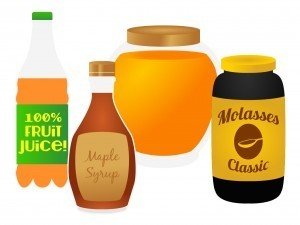 What is a natural sweetener?The answer isn't as straightforward as you might hope. You see, manufacturers are allowed to play pretty fast and loose with the "natural" label. It isn't nearly as well-regulated as organic labeling, and its applications vary from situation to situation. For instance, many people consider agave a natural sweetener because it comes from a plant, rather than a lab. Yet the agave plant must be highly processed in order to create the nectar that people buy. The same is true for stevia, which comes from a plant but must be processed and refined in order to be sold in the U.S.For the purposes of this post, we will focus on the natural sweeteners laid out by the Mayo Clinic's definition. They explain "Among the natural sweeteners that the FDA recognizes as being generally safe for consumption are fruit juices and nectars, honey, molasses, and maple syrup." Let's take a closer look at each.
What is a natural sweetener?The answer isn't as straightforward as you might hope. You see, manufacturers are allowed to play pretty fast and loose with the "natural" label. It isn't nearly as well-regulated as organic labeling, and its applications vary from situation to situation. For instance, many people consider agave a natural sweetener because it comes from a plant, rather than a lab. Yet the agave plant must be highly processed in order to create the nectar that people buy. The same is true for stevia, which comes from a plant but must be processed and refined in order to be sold in the U.S.For the purposes of this post, we will focus on the natural sweeteners laid out by the Mayo Clinic's definition. They explain "Among the natural sweeteners that the FDA recognizes as being generally safe for consumption are fruit juices and nectars, honey, molasses, and maple syrup." Let's take a closer look at each.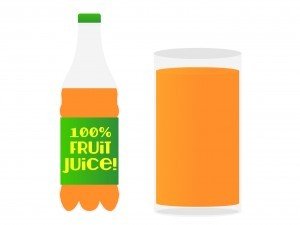 Fruit juices offer a great way to sweeten cold beverages like iced tea and water. 100% fruit juice contains more nutrients than regular sugar, though the juice lacks the fiber and other elements that a piece of fruit contains as part of its full nutrient package. Used sparingly, fruit juice can be a healthful alternative to processed sugars. Stir some into a glass of seltzer or tea for a fun new layer of flavor.
Fruit juices offer a great way to sweeten cold beverages like iced tea and water. 100% fruit juice contains more nutrients than regular sugar, though the juice lacks the fiber and other elements that a piece of fruit contains as part of its full nutrient package. Used sparingly, fruit juice can be a healthful alternative to processed sugars. Stir some into a glass of seltzer or tea for a fun new layer of flavor.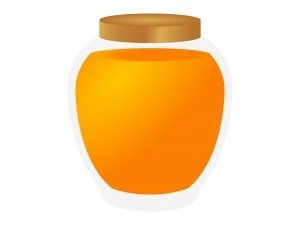 Honey* is another natural sweetener that works well in beverages, both hot and cold. You can also use it in baking, sauces and salad dressings, or as a garnish for breakfast foods like oatmeal and plain nonfat yogurt. For a basic introduction to honey and its impact on health, check out Fact Sheet: Honey. If you are baking with honey and adapting the recipe yourself, consider reducing the oven temperature by 25 degrees to lower your risk of over-browning the food, since honey reacts a little differently than sugar. It's generally a good idea to replace a cup of sugar with half a cup of honey and slightly reduce the amount of liquid in the recipe too. Experiment to find the best ways use honey in your life. Here at Food and Health, we really like a little bit of honey stirred into yogurt or drizzled over pancakes. As with all sweeteners, moderation is key.
Honey* is another natural sweetener that works well in beverages, both hot and cold. You can also use it in baking, sauces and salad dressings, or as a garnish for breakfast foods like oatmeal and plain nonfat yogurt. For a basic introduction to honey and its impact on health, check out Fact Sheet: Honey. If you are baking with honey and adapting the recipe yourself, consider reducing the oven temperature by 25 degrees to lower your risk of over-browning the food, since honey reacts a little differently than sugar. It's generally a good idea to replace a cup of sugar with half a cup of honey and slightly reduce the amount of liquid in the recipe too. Experiment to find the best ways use honey in your life. Here at Food and Health, we really like a little bit of honey stirred into yogurt or drizzled over pancakes. As with all sweeteners, moderation is key.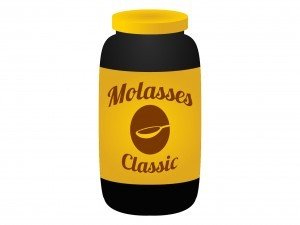 Molasses is a less well-known natural sweetener. With a thick texture and smoky flavor, molasses is derived from the processing of table sugar. Unlike many other sweeteners, molasses actually includes some nutrients. For example, 1 tablespoon of molasses contains 2.5 milligrams of iron. Iron helps your muscles function and assists your red blood cells in delivering oxygen to your tissues. That same tablespoon of molasses also contains calcium, magnesium, and vitamin B6! Its strong flavor makes molasses hard to use as an all-purpose processed sugar replacement, but it shines in foods like dark cookies and rye breads.
Molasses is a less well-known natural sweetener. With a thick texture and smoky flavor, molasses is derived from the processing of table sugar. Unlike many other sweeteners, molasses actually includes some nutrients. For example, 1 tablespoon of molasses contains 2.5 milligrams of iron. Iron helps your muscles function and assists your red blood cells in delivering oxygen to your tissues. That same tablespoon of molasses also contains calcium, magnesium, and vitamin B6! Its strong flavor makes molasses hard to use as an all-purpose processed sugar replacement, but it shines in foods like dark cookies and rye breads.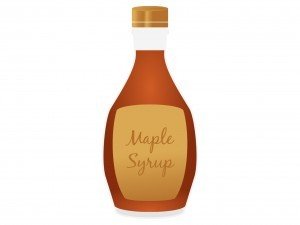 The last natural sweetener recognized by the FDA is maple syrup. We all love it on pancakes, but it's also delicious in marinades, salad dressings, cocktails, and breakfast foods like yogurt and oatmeal. Maple syrup is cooked down from sap that is drawn right from maple trees. There are different varieties based on length of processing, with grade A as the lightest and most delicate version and grade B as the darkest one with the deepest flavor. We were surprised to learn that this sweetener contains trace amounts of amino acids alongside higher levels of manganese and zinc. Health-boosting phytochemicals are also present in maple syrup. The article Further investigation into maple syrup yields 3 new lignans, a new phenylpropanoid, and 26 other phytochemicals has revealed that "these diverse phytochemicals may impart potential health benefits to this natural sweetener."
The last natural sweetener recognized by the FDA is maple syrup. We all love it on pancakes, but it's also delicious in marinades, salad dressings, cocktails, and breakfast foods like yogurt and oatmeal. Maple syrup is cooked down from sap that is drawn right from maple trees. There are different varieties based on length of processing, with grade A as the lightest and most delicate version and grade B as the darkest one with the deepest flavor. We were surprised to learn that this sweetener contains trace amounts of amino acids alongside higher levels of manganese and zinc. Health-boosting phytochemicals are also present in maple syrup. The article Further investigation into maple syrup yields 3 new lignans, a new phenylpropanoid, and 26 other phytochemicals has revealed that "these diverse phytochemicals may impart potential health benefits to this natural sweetener."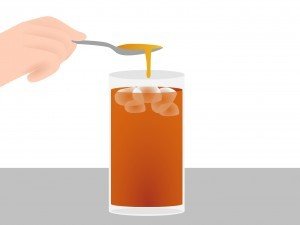 So why choose natural sweeteners?There are many reasons, some backed by better science than others, but one study stands out from the crowd. Total antioxidant content of alternatives to refined sugar by K.M. Phillips, M.H. Carlsen, and R. Blomhoff reveals that "Substantial differences in total antioxidant content of different sweeteners were found. Refined sugar, corn syrup, and agave nectar contained minimal antioxidant activity (<0.01 mmol [ferric-reducing ability of plasma -- FRAP]/100 g); raw cane sugar had a higher FRAP (0.1 mmol/100 g). Dark and blackstrap molasses had the highest FRAP (4.6 to 4.9 mmol/100 g), while maple syrup, brown sugar, and honey showed intermediate antioxidant capacity (0.2 to 0.7 mmol FRAP/100 g)." You see, the study authors used the ferric-reducing ability of plasma (FRAP) to measure antioxidant activity, and they concluded "Many readily available alternatives to refined sugar offer the potential benefit of antioxidant activity." Antioxidants can stop oxidation, which would otherwise produce free radicals that promote chronic disease. Maple syrup, honey, and molasses all had more antioxidant activity than table sugar. Isn't that neat?So. What do you think? Will you recommend natural sweeteners to your clients? Why or why not?Here's a handout that introduces a few fun natural sweeteners. Get your copy today!
So why choose natural sweeteners?There are many reasons, some backed by better science than others, but one study stands out from the crowd. Total antioxidant content of alternatives to refined sugar by K.M. Phillips, M.H. Carlsen, and R. Blomhoff reveals that "Substantial differences in total antioxidant content of different sweeteners were found. Refined sugar, corn syrup, and agave nectar contained minimal antioxidant activity (<0.01 mmol [ferric-reducing ability of plasma -- FRAP]/100 g); raw cane sugar had a higher FRAP (0.1 mmol/100 g). Dark and blackstrap molasses had the highest FRAP (4.6 to 4.9 mmol/100 g), while maple syrup, brown sugar, and honey showed intermediate antioxidant capacity (0.2 to 0.7 mmol FRAP/100 g)." You see, the study authors used the ferric-reducing ability of plasma (FRAP) to measure antioxidant activity, and they concluded "Many readily available alternatives to refined sugar offer the potential benefit of antioxidant activity." Antioxidants can stop oxidation, which would otherwise produce free radicals that promote chronic disease. Maple syrup, honey, and molasses all had more antioxidant activity than table sugar. Isn't that neat?So. What do you think? Will you recommend natural sweeteners to your clients? Why or why not?Here's a handout that introduces a few fun natural sweeteners. Get your copy today!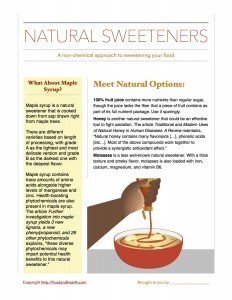 There are lots of other resources in the Nutrition Education Store. Remember, we want to help you look your very best, right now!
There are lots of other resources in the Nutrition Education Store. Remember, we want to help you look your very best, right now!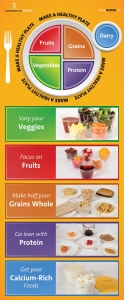
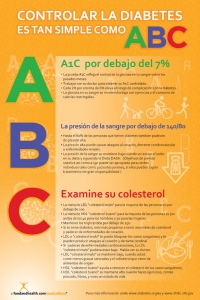
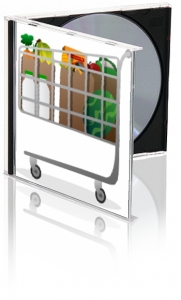 *Honey is not safe for infants under 1 year old.
*Honey is not safe for infants under 1 year old.


